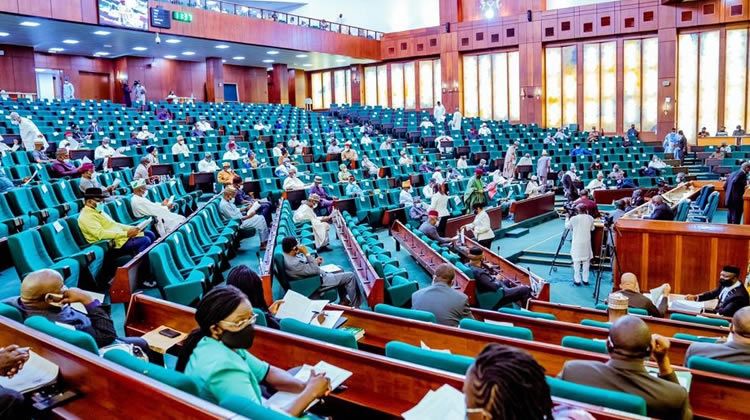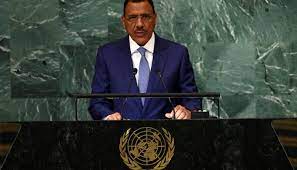
The House of Representatives has indefinitely suspended the scheduled debate on the Tax Reforms Bills, initially set for Tuesday, December 3, 2024, following mounting pressure from governors of the 19 northern states and a large faction of northern lawmakers.
The decision to postpone the debate was communicated in a memo signed by Yahaya Danzaria, the Clerk of the House, after 73 northern lawmakers raised strong objections to the proposed reforms.
The lawmakers’ opposition, which includes 48 members from the North-East, 24 from Kano State, and high-profile figures like Senator Aminu Tambuwal, the former Governor of Sokoto State, has centered around concerns that the bills would disproportionately impact the northern region.
The memo, titled “Rescheduling of Special Session on Tax Reform Bills,” issued on November 30, 2024, explained that the special session, which was to discuss the bills, would be rescheduled to allow for further consultations with relevant stakeholders. The memo assured members that a new date and venue would be communicated in due course, expressing regret for any inconvenience caused.
In a tense closed-door session, leaked footage revealed lawmakers from the North-East region, particularly those representing Borno State, voicing strong opposition. One lawmaker representing the Damboa/Gwoza/Chibok Federal Constituency from Borno described the region as the “poorest” in Nigeria, even before the insurgency, and emphasized that the current hardship faced by the people, especially in IDP camps, made the tax reforms ill-timed. He further stated, “We have concluded that we are going to make further consultations because there is nothing that is cast in stone.”
The opposition has gained momentum, with several northern lawmakers arguing that the bills do not serve the interests of their constituencies. According to one lawmaker from the North-West, there was even a near-rebellion against Deputy Speaker Benjamin Kalu, who presided over the executive session.
The lawmakers’ concerns reflect broader reservations from northern state governors, particularly regarding the new VAT-sharing formula proposed in the bills. At a gathering in Kaduna, the Northern Governors Forum directed their lawmakers to vote against the bills, citing the possibility that the reforms would further marginalize the northern states economically.
Governor Babagana Zulum of Borno State recently questioned the urgency of the tax reform process, drawing comparisons to the drawn-out passage of the Petroleum Industry Bill, which took nearly 20 years to pass. Zulum, speaking to BBC, stressed that rushing the tax bills through the legislature without proper scrutiny would be detrimental to the north, arguing that only Lagos would significantly benefit from the proposed reforms.
Zulum’s statement also emphasized the critical role the northern region played in President Bola Tinubu’s election, calling on the president to reconsider the bills in light of the region’s concerns. He further explained that although he supports the president’s administration, he believes the bills are misaligned with the country’s current economic realities.
Meanwhile, lawmakers from Kano State, including 24 federal representatives, have also firmly rejected the bills, with Kumbotso Federal Constituency representative Idris Dankawu reaffirming his commitment to ensuring the bills are withdrawn in the best interest of the people of Kano.
In contrast, some lawmakers from the ruling All Progressives Congress (APC) have been lobbying in favor of the tax reforms. Representatives like Philip Agbese of Benue State and Babajimi Benson of Lagos State continue to advocate for the bills, arguing that they aim to reduce the burden on the poor and small businesses by reforming the country’s tax system.
Benson, a staunch supporter of the bills, explained that while there is significant interest and opposition to the reforms, broader consultations are necessary to ensure the final document addresses concerns and garners acceptance.
The tax reform package includes four key bills: the Nigeria Tax Bill 2024, which seeks to establish a new fiscal framework for taxation; the Tax Administration Bill, designed to streamline tax processes and reduce disputes; the Nigeria Revenue Service Establishment Bill, which will establish a new federal revenue service; and the Joint Revenue Board Establishment Bill, which proposes the creation of a tax tribunal and an ombudsman.
The controversy surrounding the proposed tax reforms has also sparked concerns from other regional groups, with the Coalition of Northern Groups expressing opposition to the VAT regime, fearing it could widen the economic gap between the North and South. Similarly, Oyo State’s government has called for more consultations on the issue, supporting the National Economic Council’s recommendation to pause the reforms for further dialogue.
On the other hand, the pan-Yoruba socio-political group Afenifere has expressed support for the tax reforms, arguing that they could stimulate Nigeria’s economy and improve revenue generation for both federal and state governments.
As the debate over the bills intensifies, it remains to be seen when the House will reconvene to discuss the reforms, but the postponement reflects the ongoing regional and political tensions surrounding the proposed changes.





